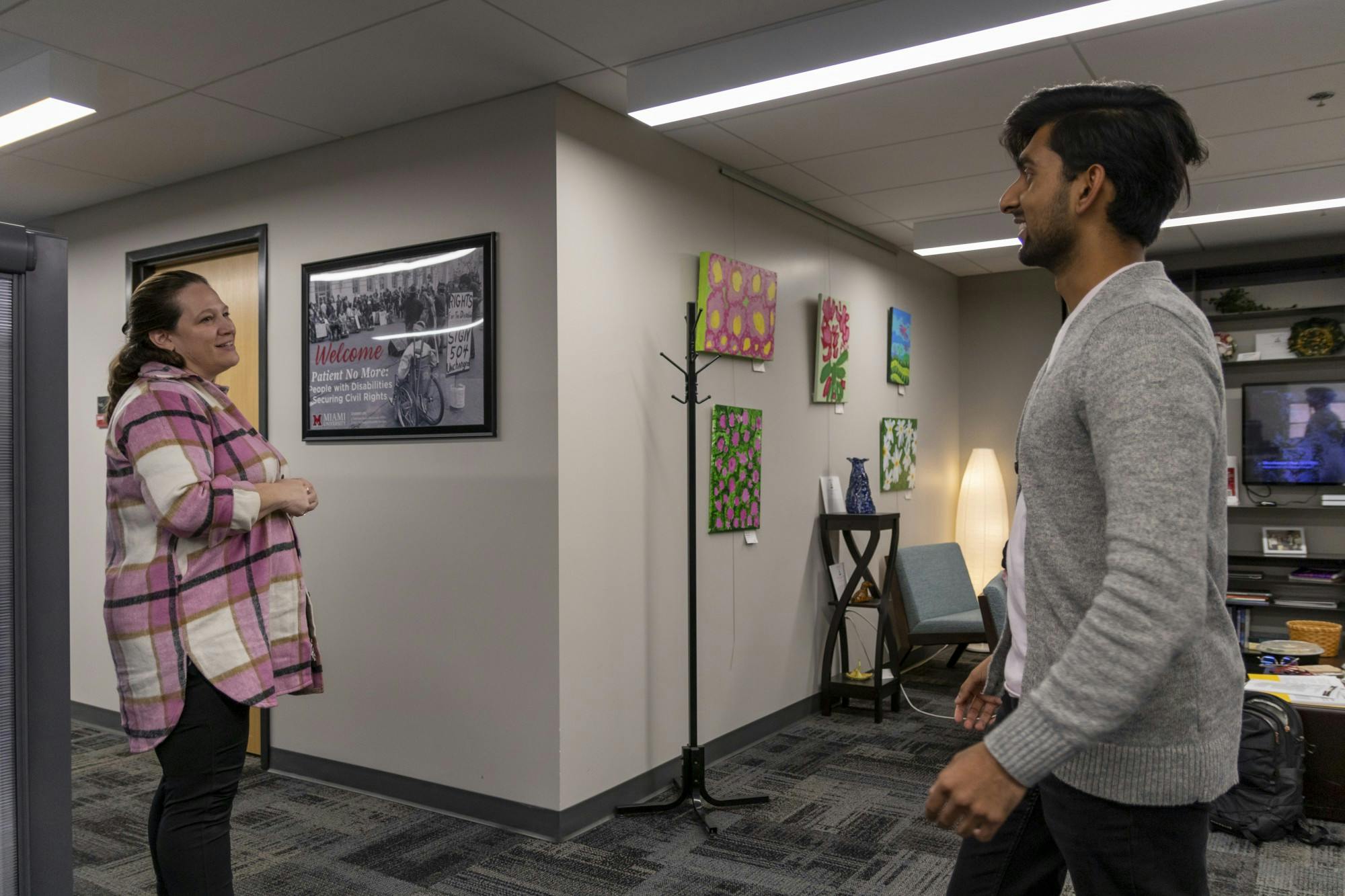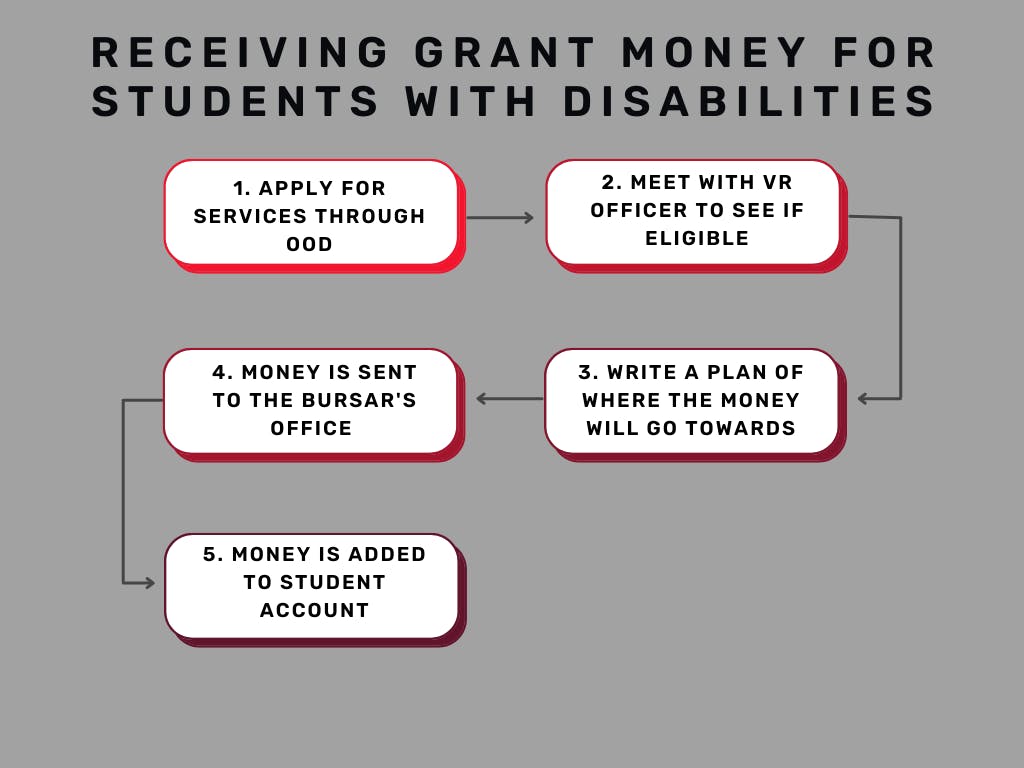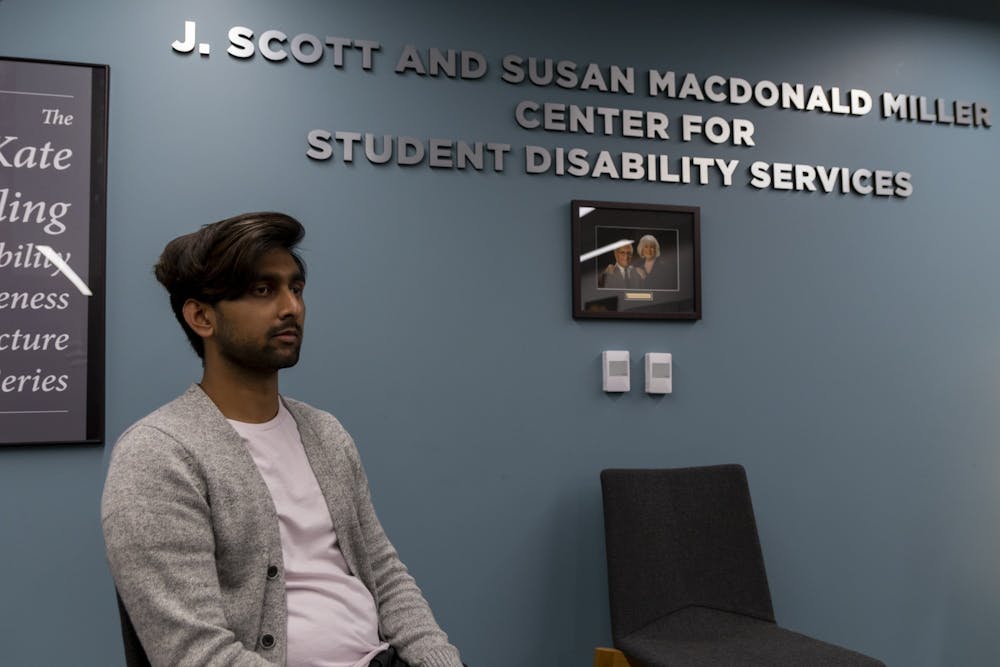Ohio Gov. Mike DeWine announced he is investing $2.1 million for Ohio college students with disabilities to help with tuition and other educational expenses for the 2022-2023 school year.
The funding is available for students registered with Opportunities for Ohioans with Disabilities (OOD). OOD’s College2Careers program is a government-funded program that employs vocational rehabilitation (VR) counselors to help college students with disabilities reach their career goals. It also provides financial aid and technology assistance to students.
Wendy Taylor, the VR counselor for Miami University, said more than 50 students who already receive help through OOD will qualify for funding. Eligible college students can receive up to $1,000 for the school year, split evenly between semesters.
Taylor said students who think they might be eligible for OOD are encouraged to reach out to her to start the process. To qualify, a student must receive OOD services and complete the 2022-2023 Free Application for Federal Student Aid (FAFSA) form.
“A student would sign up with me, we would figure out whether or not they’re eligible for my services, we would write a plan, and then I would send that money to the Bursar’s Office and it would get added to their account,” Taylor said.
Although Taylor works specifically with Miami students, anyone who applies for OOD can work with a VR counselor from their hometown.
Kinshuk Tella, a senior at Miami who is legally blind, meets virtually with a VR counselor in his hometown of Dayton because he found more use in their services. Tella said he’s already talked to his VR counselor about starting the process to receive the grant money.
“I need to fill out the FAFSA, get that student aid report to [OOD], and then after that, I don't know what the process looks like, but I know it goes through some rounds of approval,” Tella said. “I think once my counselor approves the funding, her boss has to approve it, and it’s finalized.”

Once Kinshuk Tella fills out his FAFSA and meets with his VR officer, he will find out if he is eligible for grant money.
Taylor said students need to reach out to her soon to ensure they get the most funding they are eligible for.
“If a student gets signed up with my services, and we can get the plan written before Oct. 21, I can help with $500 towards this term," Taylor said. "Even if they don’t get signed up with me by then … I would have the ability to help with $500 towards spring term or possibly summer term, depending on the student’s situation."
Enjoy what you're reading?
Signup for our newsletter

Oct. 21 is the cut-off date to receive funding for this semester.
Kim Jump, the communications chief for OOD, said this funding will help students with disabilities achieve the same academic goals that may come easier to students without disabilities.
“Students with disabilities … often have more costs that they’re paying out due to various conditions ... and [this funding] is a way of leveling the playing field,” Jump said.
Although OOD receives state and federal funding, there was extra room in the budget this year that went toward helping students.
“This sort of announcement is unique because we’re doing this $1,000 for this particular school year, and the reason we’re doing this is because, with Gov. DeWine’s support, we wanted to offer additional financial support to students with disabilities toward their educational expenses,” Jump said.
Tella said he is glad the funding is being invested into students and hopes he receives the full amount of $1,000. Although he believes the grant will help many students with disabilities, he said this is just a first step.
“[Aid for students with disabilities] is variable based on individual counselors and the agency state by state which is an issue in my opinion,” Tella said. “It’s hard to deal with, so as far as future funding goes, I think they should be offering more funding for students in general.”
Students who think they might be eligible can go to OODWorks.com and fill out the application form. Taylor encourages students to signify they are a Miami student on the form to ensure they are matched with her.
Students can also fill out the application on the Miller Center for Student Disability Services website, but students do not need to be registered with the Miller Center to receive help from OOD.




